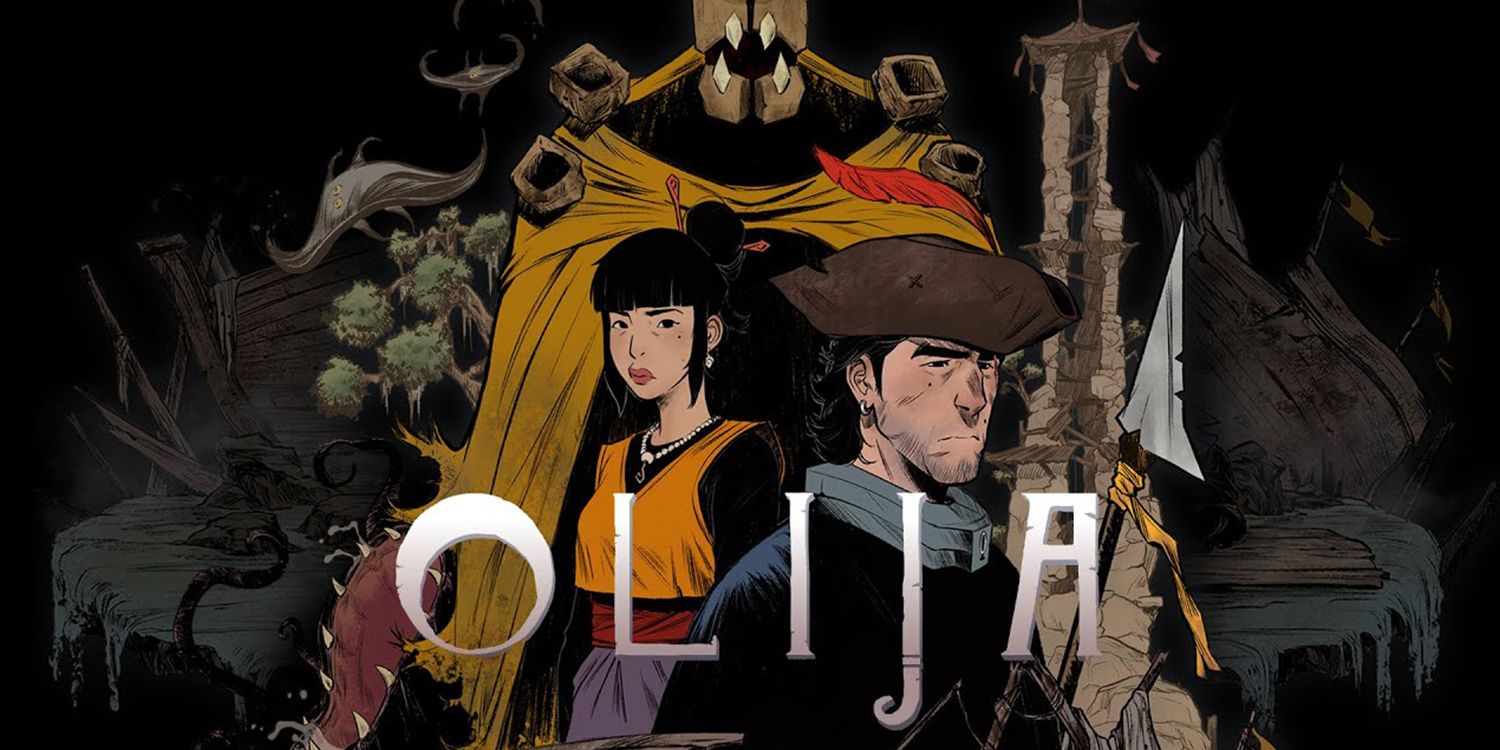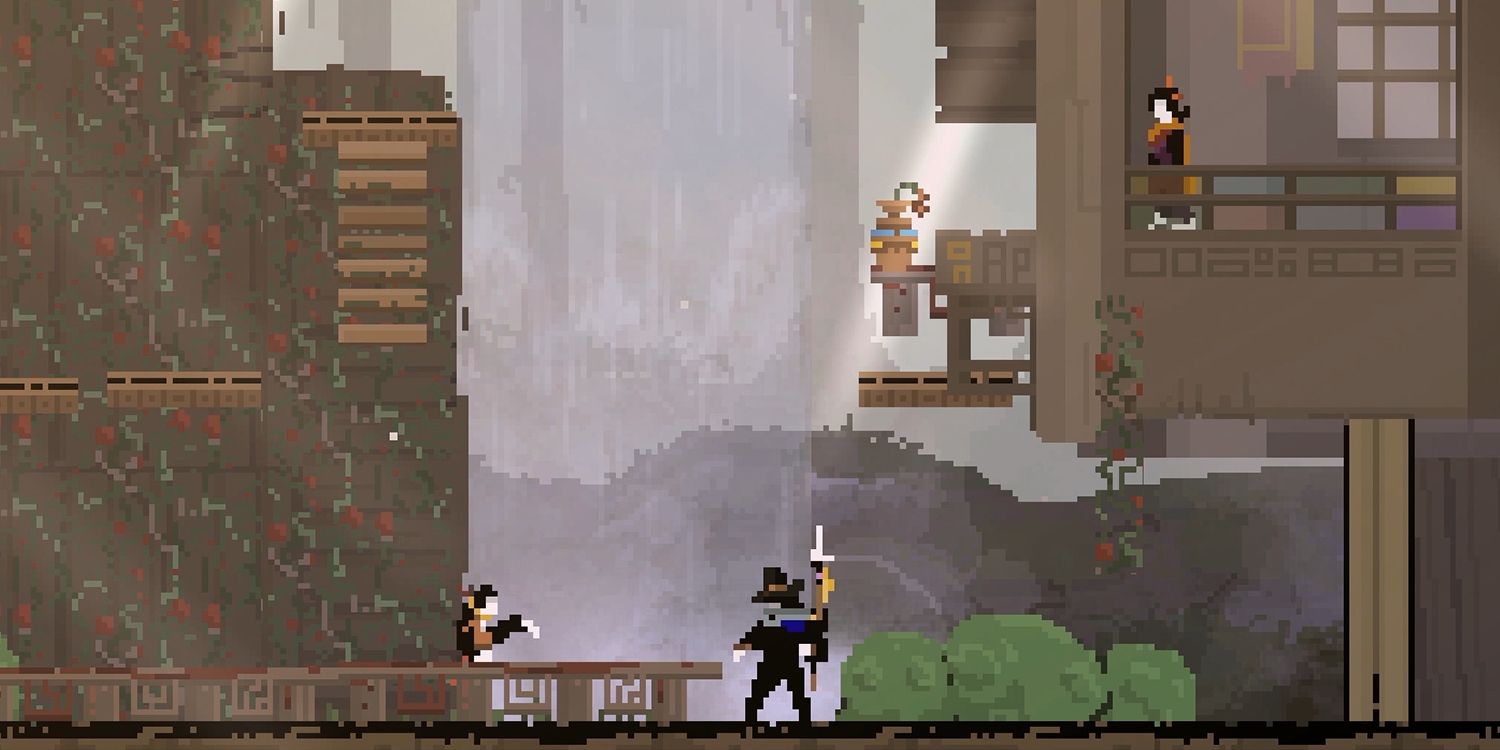Olija is a unique blend of classic adventure games and Metroidvania from Skeleton Crew Studio and published by Devolver Digital. Olija tells the tale of Faraday, a lord who wakes up on the mysterious shores of Terraphage after his ship is lost in a storm. Faraday is tasked with finding his shipmates in an eerie world inspired by Asian mythology and sailor's stories, with a memorable atmosphere and less memorable - but still solid - gameplay.
Metroidvania is an increasingly popular genre, particularly for indie games, but few have such an emphasis on tone and narrative like Olija. The game's visual style creates a sense of unease and intrigue through interesting contrasts. Pixel art is no stranger to the indie game scene, but many Olija characters and backgrounds are rough and jagged, particularly in cutscenes, which are reminiscent of old-school adventure games like the Monkey Island series. Despite the dated style, the environment is packed with small details. Dust will scatter when Faraday hops on a ladder, and the chunky, pixelated water still sways smoothly with the tide. The ancient aesthetic combines with a few modern advancements, like gradient lighting and a lovely Flamenco-esque soundtrack instead of 8-bit tracks, to create a blend of old and new that invokes a lot of curiosity and intrigue. It's far from the prettiest Metroidvania - one contender for that title recently released on Switch - but unique visuals nevertheless help Olija stand out from the crowd.
The gameplay struggles to be as memorable, but is still serviceable, and even satisfying in its best spots. Players traverse through different stages of Terraphage with the classic combination of combat and platforming familiar to anyone who's played the genre before. Faraday uses his weapon, aptly named the Harpoon of Legend, to attack the strange beasts and blobs of the island. The harpoon can be thrown and recalled, or Faraday can teleport to its location, similar to the spear in Hades. It's a fun mechanic that adds some platforming puzzles to the mix and helps diversify the way the game plays out.
Olija encourages exploration through a simple crafting and town development system. Early on, players will encounter Oaktide, a decrepit camp of starving shipwrecked sailors. Smashing boxes and defeating monsters throughout Terraphage will drop currency that can be invested in Oaktide on shops and buildings, developing the shantytown into a player hub. Crafting materials can also be found, such as bones from smashing skeletons, that can be spent on magical hats that bring powerful perks.
Olija enters a crowded genre and its gameplay does little to revolutionize the scene, but it still manages to stand out with a unique visual style that greatly contributes to its intriguing, atmospheric tone. Anyone interested in the story should go in blind, as a sense of mystery adds to the experience. The Devolver catalog has often curated the best in niche indie games, and Olija is another good addition for those looking for a unique, moody, maritime experience.
Olija releases on January 28th, 2021, for PC, PS4 and Nintendo Switch. Screen Rant was given a Steam code for the purposes of this review.


